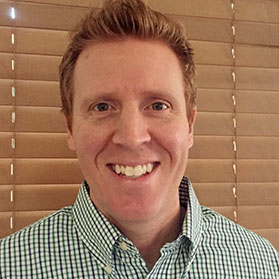By: Greg Douglas, LPC
After years of working with couples healing from infidelity I’ve come to see patterns in the mistakes people make. In this article I’ll outline the 3 biggest mistakes I see unfaithful partners make and give you clarity on what to do instead. I’ve you’ve strayed, play close attention as the following article just might save your relationship.
Mistake #1: Avoiding Talking About or Brining up the Betrayal
Almost all unfaithful partners initially subscribe to the idea that the more than can avoid talking about or dealing with the infidelity the better. These people think that avoiding talking about the betrayal helps their hurt partner to have more “good days.” I’m here to tell you this approach backfires all the time and often leads to an angry hurt partner who now feels the burden to “keep the affair alive.”
I teach my unfaithful partners to adopt the mindset that you can help your partner out and take pressure off of them by bring up the affair. In a counter-intuitive way the more you as the injuring partner bring up the affair, the more your partner can relax since they don’t have to shoulder the burden of broaching the subject when they’d like to talk. Make it a point to check in on your partner an ask how they are doing regarding the betrayal. If you think of something that might help your partner put the pieces together, then bring it up yourself.
The more you can send the message that you are open and willing to talk about the betrayal the more quickly your hurt partner will heal.
Mistake #2: Not Sending a Clear Message to the Affair Partner
Many of my unfaithful partners share a similar sentiment. Their opinion is that avoiding any further communication with the affair partner sends the message that the affair is over. These people believe that no communication sends a message. I’m not so sure I agree.
I believe that after the affair has been uncovered, and once you make the decision to work on saving your relationship with your partner, sending a clear message to the affair partner is critical. You don’t want to leave anything to chance. Not contacting them at all can be interpreted many ways. The affair partner could think: “I guess we’re just taking a break?” “They’ll reach out when things cool down with their partner.” “They’re leaving the door open to come back together in the future.”
I believe that making a clear statement (often a written statement) to the affair partner letting them know that the relationship is over, you have committed to working on repairing things with your spouse, and that you will no longer be contacting them or responding to communication from them is the best course of action. Let your partner be involved in crafting the message, or at the very least, let them see what you have written and show that it was delivered.
Making a clean break from the affair partner is critical for true healing to occur in your partnered relationship, so don’t skip this critical step.
Mistake #3: Not Doing the Work to Heal
Unfaithful partners will often take the stance that their hurt partner is really the one with the most work to do. While it’s true that recovering from a betrayal is hard work for the hurt partner, this is only part of the story. The truth is that the unfaithful partner has just as much work to do on their side.
Addressing questions like: What led you to having the affair? What factored into your decision to stray? What do you need to change about yourself to have this relationship work better for you? What unhealthy beliefs, attitudes, and behaviors led to your actions to stray? How do you need to operate differently in the relationship moving forward to feel better?
If your hurt partner asks you to read a book, listen to a podcast, or do a relationship exercise do it! The more you show you partner that you are just as invested in the work as them, the more they feel safe, loved, and cared for. All crucial ingredients when looking to heal from an affair.
How Douglas Counseling Can Help
Douglas Counseling specializes in relationships and affair recovery. I have worked with hundreds of couples recovering from affairs and have helped many injuring partners find the needed mindset to heal and build a better relationship.
If you would like more information or would like to schedule a free consultation, please call (503) 388-6611 and visit us online at www.DouglasCounseling.com.

